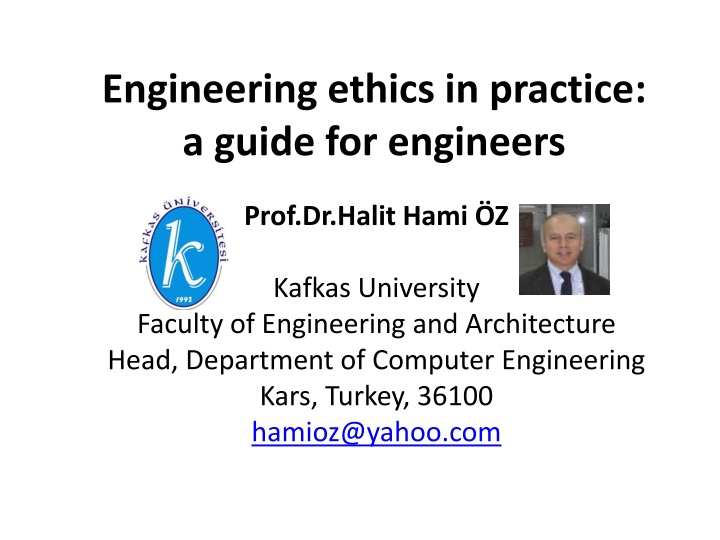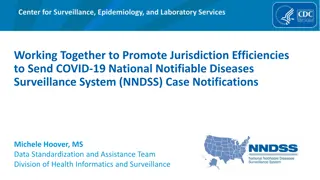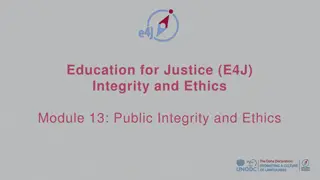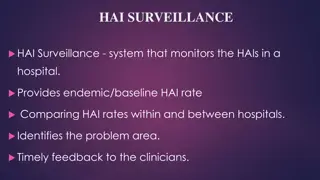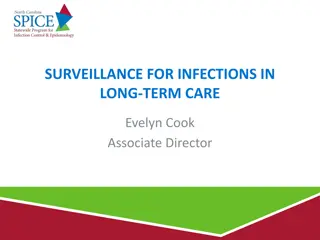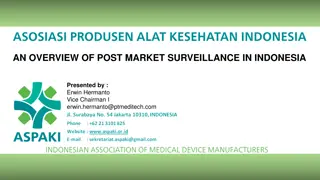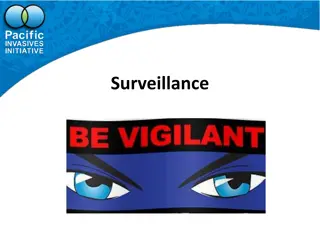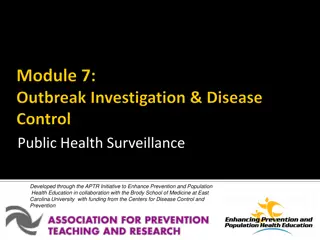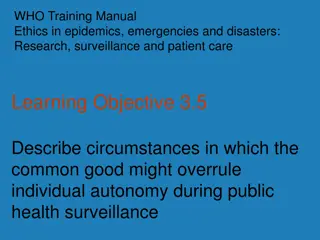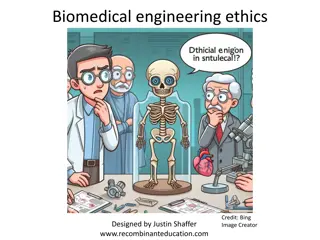Ethics in Engineering: Promoting Public Awareness of Surveillance Technologies
Professional engineers play a crucial role in promoting public awareness and understanding of the impact and benefits of engineering achievements. This involves developing systems like CCTV monitoring to enhance security while balancing privacy concerns. Shanil, a senior engineer, leads a project aiming to detect suspicious activities using CCTV footage at transport hubs. Despite believing in the technology's positive impact on safety and privacy, he also expresses concerns about the lack of regulations governing surveillance technologies.
Download Presentation

Please find below an Image/Link to download the presentation.
The content on the website is provided AS IS for your information and personal use only. It may not be sold, licensed, or shared on other websites without obtaining consent from the author.If you encounter any issues during the download, it is possible that the publisher has removed the file from their server.
You are allowed to download the files provided on this website for personal or commercial use, subject to the condition that they are used lawfully. All files are the property of their respective owners.
The content on the website is provided AS IS for your information and personal use only. It may not be sold, licensed, or shared on other websites without obtaining consent from the author.
E N D
Presentation Transcript
Engineering ethics in practice: a guide for engineers Prof.Dr.Halit Hami Z Kafkas University Faculty of Engineering and Architecture Head, Department of Computer Engineering Kars, Turkey, 36100 hamioz@yahoo.com
I used the Engineering ethics in practice: a guide for engineers book written by The Royal Academy of Engineering for teaching as well as making the ppt presentations about the Engineering Ethics course Prof.Dr.Halit Hami Z Prof.Dr.Halit Hami OZ - Engineering Ethics Course 2
5.2 Promoting public awareness Professional engineers should actively promote public awareness and understanding of the impact and benefits of engineering achievements. Scenario SudoWatch specialise in surveillance technologies, and in CCTV and cameras in particular. Shanil is a senior engineer leading one of the main projects, which involves trying to develop a system that monitors live CCTV footage in order to detect unusual or suspicious activity, so that a human operator is not required to monitor each individual camera. Prof.Dr.Halit Hami OZ - Engineering Ethics Course 3
5.2 Promoting public awareness The system is designed primarily for train stations and airports, and the challenge is to develop a system that will detect people leaving bags unattended, or acting suspiciously, while limiting the number of people involved in innocent activities (such as trainspotting) being harassed. Prof.Dr.Halit Hami OZ - Engineering Ethics Course 4
5.2 Promoting public awareness Shanil is committed to his work, believing that it makes an important contribution, both because he believes that this technology will help to keep people safe, protecting them from terrorist attack, and also because he believes that it protects people s privacy interests because the CCTV will not be watched by a human operator. Prof.Dr.Halit Hami OZ - Engineering Ethics Course 5
5.2 Promoting public awareness However, he also has concerns about the lack of regulations governing CCTV and other surveillance technology, and is concerned about the amount of CCTV, particularly owned by private individuals. Prof.Dr.Halit Hami OZ - Engineering Ethics Course 6
5.2 Promoting public awareness In addition, SudoWatch have recently started producing cheap hidden camera products, such as hidden cameras made to look like smoke alarms, clocks, mp3 players, pens and watches. These products typically sell for under 200 and can be bought by anyone who wants one. Prof.Dr.Halit Hami OZ - Engineering Ethics Course 7
5.2 Promoting public awareness Shanil doesn t believe that these products have a legitimate purpose, and is worried by the lack of regulation regarding the sale and use of such products. In particular, Shanil believes that the public are not aware of how easily these products are the production of these products, but is not happy that the company he works for has decided to go in this direction Prof.Dr.Halit Hami OZ - Engineering Ethics Course 8
Dilemma You work for a surveillance technology company, developing behaviour recognition systems to protect people from the threat of terrorism a project that you believe in. However, you have misgivings about the company s new venture into developing hidden cameras for individual use, although you recognise that your company are legally entitled to develop these monitoring products. What do you do? Prof.Dr.Halit Hami OZ - Engineering Ethics Course 9
What should you do? You could tell yourself that you are working on a worthwhile job, and it is not your responsibility to address concerns about public policy and the misuse of products. You could leave your job, stating that you have concerns about the work the company is doing. You could continue working on the project, but at the same time speak out publicly about your concerns about the lack of regulation. You could try to persuade your company to work with you to consider the ethical issues, to work with people in the community and with ethics committees. You could encourage them to work towards campaigning for better regulations while, at the same time, developing the new technologies. You could work with professional bodies to explore the ethical issues, and to campaign for better regulations, informing politicians and the public of the technology that is already available and/or is likely to become available in the near future. Prof.Dr.Halit Hami OZ - Engineering Ethics Course 10
Discussion In favour of the first option, it could be tempting for you to think of this in terms of a simple division of labour, with scientists and engineers developing the valuable technologies, and politicians dealing with the social policies to avoid the possible undesirable consequences of the technology. However, this option could be seen as an abdication of your responsibilities; at the very least, it is your responsibility to think about whether this is worthwhile work which ought to be done. If it isn t, perhaps you should refuse to work on something that isn t worthwhile, and could be harmful Prof.Dr.Halit Hami OZ - Engineering Ethics Course 11
Discussion In this case, you do consider your own work to be worthwhile. Beyond this, however, there is another reason not to assume a sharp division of labour. Arguably, you as the engineer could concentrate on the possible benefits of a new technology, and downplay any potential problems, especially when these could (potentially) be dealt with by a change in the law, or some other social change. This is especially true if you think about the issue in the way described above, with a clear division of labour, and if you assume that society will address the problems that need addressing in order to get the benefits without the harms. Prof.Dr.Halit Hami OZ - Engineering Ethics Course 12
Discussion Unfortunately, we live in an imperfect world, and you cannot assume that the appropriate laws will be passed or social changes will happen. You must consider what impact the technology will have, given that we live in an imperfect world, where there are many drivers governing what legislation gets passed. You should not focus only on the impact the technology would have if only we could eradicate various social problems and human vices. Prof.Dr.Halit Hami OZ - Engineering Ethics Course 13
Discussion In general, ignoring the complex social context in which decisions are made can lead to unrealistic calculations about the value of new technologies: if evaluating a technology involves weighing up the pros and the cons, this evaluation will be distorted if the cons are not given the appropriate weight. Prof.Dr.Halit Hami OZ - Engineering Ethics Course 14
Discussion This also illustrates why engineers have a duty to engage with society. A society cannot make the necessary changes if they are not made aware of the relevant developments by those with the right technical knowledge and expertise. If, as you fear in this situation, society isn t ready for the new technology, then the engineering profession has a responsibility to work to inform the public of the technologies that are being developed, and to offer advice about what changes are required, and to start a public debate. Prof.Dr.Halit Hami OZ - Engineering Ethics Course 15
Discussion You as an engineer and the engineering profession as a whole - needn t accept the world as it is, and can legitimately encourage society to consider the possible consequences of new technologies and to take the steps that will be necessary to limit the unwanted side effects of a particular technology. The medical profession, for example, has been involved in debates about the ethics of abortion, or of stem cell research. This has typically gone beyond just giving medical advice, and has included ethical analysis, arguing for or against particular views. Engineers can involve themselves in similar ways in decisions relevant to their profession. Prof.Dr.Halit Hami OZ - Engineering Ethics Course 16
Discussion If you dismiss option one, and acknowledge that you have some responsibility to consider the social impact of your work, the question of what is a suitable option remains. Option two, leaving your job, doesn t seem appropriate in this case, but could be in other cases if you felt strongly enough about the issue. As a clarification of the third option, it should be noted that the suggestion is not that you speak out against your company (though, of course, whistleblowing is legitimate in some cases, especially in cases of serious wrongdoing). Rather, the suggestion is that you speak out publicly about the need for changes in the law, to stress the need for regulation. This could be done in a way that remains supportive of your company and your company s aims. The claim could be that these new regulations are required so that companies (like the one you work for) are able to continue to do valuable work without worrying that their products can be very easily used for less legitimate purposes. Prof.Dr.Halit Hami OZ - Engineering Ethics Course 17
Discussion Nevertheless, it would, of course, be preferable if you were able to persuade your company to work with you in this. Similarly, it will also be beneficial if you have the support of professional bodies. Prof.Dr.Halit Hami OZ - Engineering Ethics Course 18
Summary In this case, you have a conflict between believing in the value of the project that you are working on and concerns about other products manufactured by the company. It may not be appropriate to quit your job over the issue in the first instance, as you could work towards the sorts of social changes that would be necessary to protect people from the misuse of surveillance technologies. Where possible, it would be best if you could work with the company and/or professional bodies in trying to achieve these aims. Prof.Dr.Halit Hami OZ - Engineering Ethics Course 19
Other ethical considerations involved in this case As well as responsible leadershipthis case raises important questions regarding what an appropriate respect for life, law and the public good requires. Prof.Dr.Halit Hami OZ - Engineering Ethics Course 20
Wider applications There will be many situations in which public awareness of an issue is important. Respecting the requirement to promote public awareness may just require publicising a new issue: to demonstrate, for example, that driverless vehicles are now a real possibility, and to consider the implications of this new technology. Prof.Dr.Halit Hami OZ - Engineering Ethics Course 21
Wider applications In other cases, the promotion of public awareness may be important because the public have misconceptions about a particular technology possibly due to lack of information. For example, individuals might have concerns about nanotechnology. Some of these concerns may be legitimate, and may be real issues that society needs to address. Other concerns, however, may be based on misconceptions, and the promotion of awareness and understanding may be sufficient to create informed opinion of important new technologies. Prof.Dr.Halit Hami OZ - Engineering Ethics Course 22
5.3 Truth and objectivity Be objective and truthful in any statement made in their professional capacity Scenario Patricia Smith is employed by Spectrup, a radio broadcast equipment manufacturer as a sales rep. In addition, Patricia works as an independent consultant for organisations in the radio broadcast field. This work can include analysing their technical problems and, when required, recommending any radio broadcast equipment that they might need. Prof.Dr.Halit Hami OZ - Engineering Ethics Course 23
5.3 Truth and objectivity Whilst working as an independent consultant the kind of equipment about which Patricia makes recommendations is often the kind of equipment that could be supplied by Spectrup. Indeed, sometimes Patricia does recommend Spectrup products. There are two reasons why Patricia might recommend Spectrup products: firstly, that they are better or at least as good as any competing products at meeting the client s requirements; s econdly, that Patricia is an employee of Spectrup, and both has loyalty to the company and will stand to benefit from the sale. Prof.Dr.Halit Hami OZ - Engineering Ethics Course 24
5.3 Truth and objectivity Since they are employing Patricia as an independent consultant, her clients expect her to provide them with impartial advice, and feel that they are justified in this expectation. In other words, they expect Patricia only to recommend Spectrup products when they are the best available. Patricia is aware of this, but she is also a loyal employee of Spectrup and instinctively it feels wrong to her to recommend competitor products when Spectrup products would be adequate for the client s needs. Prof.Dr.Halit Hami OZ - Engineering Ethics Course 25
5.3 Truth and objectivity It seems, therefore, that by having both jobs Patricia is likely to face conflicting obligations. She is aware of this conflict of interests and wonders if she can overcome it by ensuring that she separates her two jobs completely, so leaving her free to think only of her clients interests, and not those of Spectrup, when acting as a consultant. Prof.Dr.Halit Hami OZ - Engineering Ethics Course 26
5.3 Truth and objectivity However, even if Patricia manages to separate her two jobs effectively, giving entirely impartial advice when working independently, and being loyal and diligent when working for Spectrup, the fact that she has these two jobs may affect others opinions of her; they may believe her to be biased when in fact she is not. Prof.Dr.Halit Hami OZ - Engineering Ethics Course 27
Dilemma Imagine that you are Patricia Smith. You work as both an independent consultant and as a sales rep for Spectrup, a radio broadcast equipment manufacturer. Given that you are called upon to recommend appropriate equipment to clients in your role as a consultant, you recognise that you are faced with a conflict of interests between your two jobs. As a consultant you should be impartial, but as an employee of Spectrup you should promote their products where possible. Is it possible to separate your roles to avoid the conflict? And if it is, how do you convince people that you can maintain this separation? Prof.Dr.Halit Hami OZ - Engineering Ethics Course 28
What should you do? You could make sure that your consulting clients do not know about your job with Spectrup to avoid them suspecting that your advice is biased. You could decide either to stop offering independent consulting services, or you could resign from your job with Spectrup, so eliminating the conflict. You could make sure that Spectrup is aware of your consulting activity, and that all your consulting clients are aware of your job with Spectrup and you could make it clear to all parties that you will act completely impartially when employed as a consultant. Prof.Dr.Halit Hami OZ - Engineering Ethics Course 29
Discussion You are aware that part of the problem in carrying out your two roles stems from the feeling that you are somehow being disloyal to Spectrup if you do not recommend their products to your consulting clients. You know that your clients expect you to be impartial and would be unhappy if they thought that you were not; however, if they were unaware of your role with Spectrup then they would have no reason to question your impartiality. Perhaps by keeping your role with Spectrup concealed you can keep both parties happy. Prof.Dr.Halit Hami OZ - Engineering Ethics Course 30
Discussion This course of action would clearly be unacceptable in a number of respects. Firstly, as a professional engineer you have a responsibility to be truthful. Deliberate failure to mention materially relevant information is a breach of this obligation to truthfulness. In addition, you also have an obligation to be objective; objectivity requires that you only take into account relevant considerations, from the point of view of the problem at hand, when reaching professional conclusions. In this case the problem at hand is to decide on the most appropriate equipment for a client, and your role with Spectrup is not relevant to your conclusions. Not only does the client expect you to be impartial, but you have an ethical responsibility to be impartial. Prof.Dr.Halit Hami OZ - Engineering Ethics Course 31
Discussion It appears, therefore, that you must deal with the conflict of interests directly. One way of doing this would be to give up one or other of your jobs. Doing so would certainly eliminate the conflict of interests, but as you enjoy both roles you are keen to find a way to be truthful and objective in your consulting work while keeping your job with Spectrup. Prof.Dr.Halit Hami OZ - Engineering Ethics Course 32
Discussion At the very least, truthfulness would seem to require that you inform all interested parties of the different roles that you perform. As you also have an obligation to be objective as a consultant, you should also make this clear. It may be that Spectrup fully accepts your dual roles and, having discussed this with them, you may feel that you no longer have a conflict of loyalty when making consulting recommendations Prof.Dr.Halit Hami OZ - Engineering Ethics Course 33
Discussion If this is the case then option 3 may be sufficient. If your discussions with Spectrup are less clear cut than this, or if your consulting clients still harbour reservations, you could go further and actually have explicit terms written into your contract with Spectrup (and with your consulting clients). These terms would free you from any obligation to Spectrup when consulting, prevent you from receiving any commission for recommendations you make during such work, and commit you to impartiality. Prof.Dr.Halit Hami OZ - Engineering Ethics Course 34
Discussion Even going to these lengths, however, you may still feel uneasy you have worked for Spectrup for so long that you are concerned that you may subconsciously still favour them. In addition, your consulting clients may still be worried that they have no way of verifying if you are keeping to your commitment to impartiality or not. If this is the case, perhaps you could go even further and offer to have any recommendations you make for Spectrup equipment independently verified to ensure they are appropriate? Prof.Dr.Halit Hami OZ - Engineering Ethics Course 35
Summary Your obligation to act truthfully and objectively in your professional capacity when providing independent consulting services prevents you from favouring Spectrup products in your recommendations. In order to ensure you can meet this obligation, you must first ensure that neither your clients nor Spectrup think that you have made a promise to Spectre to the contrary, and that all are aware of your dual roles. The question is then, how far do you need to go to ensure that you are not biased in favour of Spectre, and that all parties can clearly see that you are not? Prof.Dr.Halit Hami OZ - Engineering Ethics Course 36
